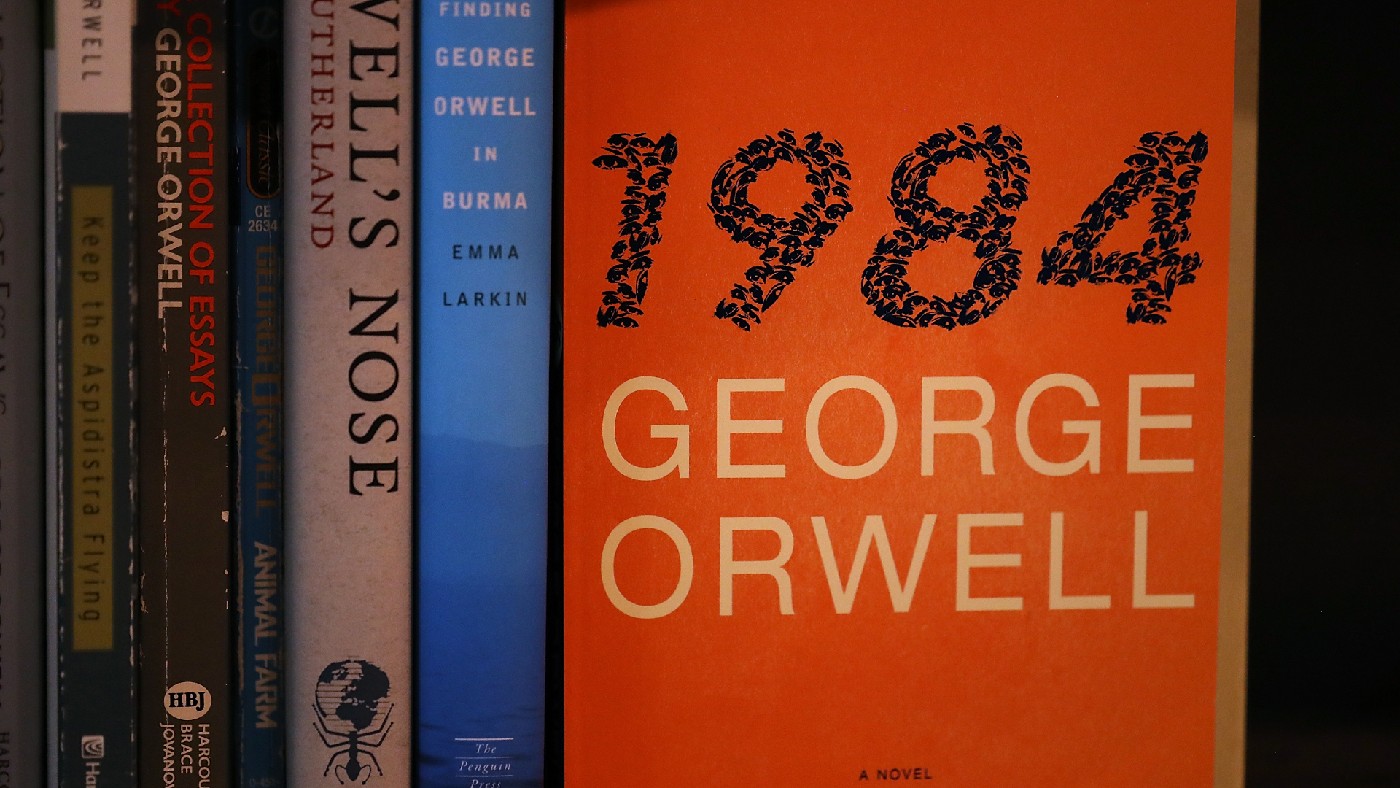Book of the week: Orwell’s Roses by Rebecca Solnit
This curious, meandering book restores ‘something missing’ from the popular perception of Orwell

A free daily email with the biggest news stories of the day – and the best features from TheWeek.com
You are now subscribed
Your newsletter sign-up was successful
George Orwell is often presented as a “rather dour and austere figure”, said Gaby Hinsliff in The Observer – a chronicler of hardship and a “prophet of doom”. But according to the American essayist Rebecca Solnit, there was a softer side to the author – which expressed itself in his love of gardening.
Orwell’s Roses begins with Solnit visiting the Hertfordshire village where Orwell lived between 1936 and 1940, in a rented cottage. In its garden, she finds two vigorously flowering rose bushes, which she assumes to be the ones he recorded planting in his diary. The book that “blooms” from this discovery covers many topics: the influence on Orwell of the English pastoral; the symbolism of the rose in art and literature; the working conditions at the South American rose farms that supply us with “cheap blooms” today. It’s a curious, meandering book – one that “belongs in a whimsical category of its own” – but it does restore “something missing” from the popular perception of Orwell.
Previous commentators haven’t generally dwelled on Orwell’s horticultural leanings, said Rupert Christiansen in The Daily Telegraph. But Solnit – best known for her witty 2008 essay Men Explain Things to Me, which gave rise to the term “mansplaining” – mounts a surprisingly persuasive case that Orwell’s interest in gardening offers a kind of key to understanding his work.
The Week
Escape your echo chamber. Get the facts behind the news, plus analysis from multiple perspectives.

Sign up for The Week's Free Newsletters
From our morning news briefing to a weekly Good News Newsletter, get the best of The Week delivered directly to your inbox.
From our morning news briefing to a weekly Good News Newsletter, get the best of The Week delivered directly to your inbox.
She stresses that he was drawn to homely things: rusticity, artisanal traditions, a “properly brewed cup of tea”. Much of the honesty of his writing, she argues, grew out of this engagement with the physical world. And she connects it to the sense of hope that flourished in all his work, alongside the more familiar “Orwellian” warnings about oppression, totalitarianism and state surveillance.
Like Solnit, Orwell was an insatiably curious essayist with a “penchant for digressions and tangents”, said Heller McAlpin in the Los Angeles Times. But while she clearly sees him as a kindred spirit, she doesn’t ignore what she calls his “significant blind spots” – most notably his rather dismissive attitude towards women, which manifested in his failure to review books by female writers.
She also stresses that though he criticised imperialism, he himself was its beneficiary: he was “descended from colonialists and servants of empire”, and his father was an opium producer in India. Overall, Solnit “leaves no row unhoed” in this impressive reassessment of one of our greatest writers. From its “beautiful cover to its impassioned coda”, it is “one of her very best” books.
Granta 320pp £16.99; The Week Bookshop £13.99
A free daily email with the biggest news stories of the day – and the best features from TheWeek.com

The Week Bookshop
To order this title or any other book in print, visit theweekbookshop.co.uk, or speak to a bookseller on 020-3176 3835. Opening times: Monday to Saturday 9am-5.30pm and Sunday 10am-4pm.
-
 James Van Der Beek obituary: fresh-faced Dawson’s Creek star
James Van Der Beek obituary: fresh-faced Dawson’s Creek starIn The Spotlight Van Der Beek fronted one of the most successful teen dramas of the 90s – but his Dawson fame proved a double-edged sword
-
 Is Andrew’s arrest the end for the monarchy?
Is Andrew’s arrest the end for the monarchy?Today's Big Question The King has distanced the Royal Family from his disgraced brother but a ‘fit of revolutionary disgust’ could still wipe them out
-
 Quiz of The Week: 14 – 20 February
Quiz of The Week: 14 – 20 FebruaryQuiz Have you been paying attention to The Week’s news?
-
 James Van Der Beek obituary: fresh-faced Dawson’s Creek star
James Van Der Beek obituary: fresh-faced Dawson’s Creek starIn The Spotlight Van Der Beek fronted one of the most successful teen dramas of the 90s – but his Dawson fame proved a double-edged sword
-
 Properties of the week: pretty thatched cottages
Properties of the week: pretty thatched cottagesThe Week Recommends Featuring homes in West Sussex, Dorset and Suffolk
-
 Kia EV4: a ‘terrifically comfy’ electric car
Kia EV4: a ‘terrifically comfy’ electric carThe Week Recommends The family-friendly vehicle has ‘plush seats’ and generous space
-
 Bonfire of the Murdochs: an ‘utterly gripping’ book
Bonfire of the Murdochs: an ‘utterly gripping’ bookThe Week Recommends Gabriel Sherman examines Rupert Murdoch’s ‘war of succession’ over his media empire
-
 Gwen John: Strange Beauties – a ‘superb’ retrospective
Gwen John: Strange Beauties – a ‘superb’ retrospectiveThe Week Recommends ‘Daunting’ show at the National Museum Cardiff plunges viewers into the Welsh artist’s ‘spiritual, austere existence’
-
 Bad Bunny’s Super Bowl: A win for unity
Bad Bunny’s Super Bowl: A win for unityFeature The global superstar's halftime show was a celebration for everyone to enjoy
-
 Book reviews: ‘Bonfire of the Murdochs’ and ‘The Typewriter and the Guillotine’
Book reviews: ‘Bonfire of the Murdochs’ and ‘The Typewriter and the Guillotine’Feature New insights into the Murdoch family’s turmoil and a renowned journalist’s time in pre-World War II Paris
-
 6 exquisite homes with vast acreage
6 exquisite homes with vast acreageFeature Featuring an off-the-grid contemporary home in New Mexico and lakefront farmhouse in Massachusetts